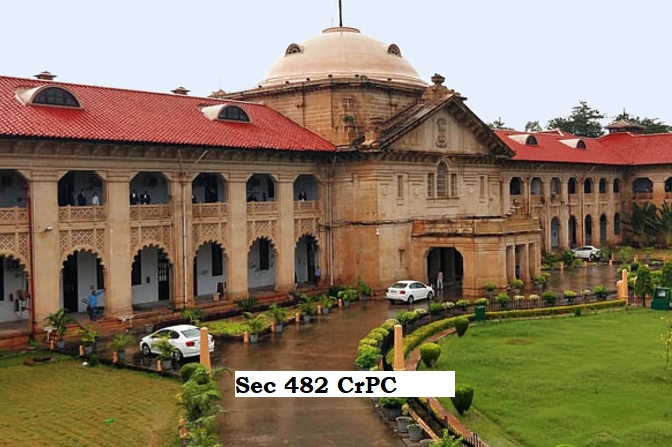


The Allahabad High Court, in its consideration of an application under Section 482 of the Criminal Procedure Code (CrPC), emphasized the limited scope of examination in such proceedings. The court asserted that it cannot delve into the accused's claim of false implication during Section 482 proceedings. When exercising powers under Section 482, the court's jurisdiction is confined to assessing whether sufficient material exists to proceed against the accused.
This particular observation arose in the context of the court dismissing an application submitted by two accused individuals under Section 482 CrPC. The application challenged an order from the Special Judge (POCSO Act)/Additional Sessions Judge, Sitapur, who had taken cognizance of offenses under Sections 302 and 120-B IPC, as well as Section 3(2) of the SC/ST Act against the applicants. Notably, the applicants' names were absent from the charge sheet related to the murder of a girl.
The trial court's decision to take cognizance was based on the statements of another girl who had been with the deceased at the time of the incident. The girl implicated the applicants in her statements recorded by the Investigating Officer under Section 161 CrPC and by the Magistrate under Section 164 CrPC. The trial court, relying on a Supreme Court ruling in the case of Nahar Singh vs State of Uttar Pradesh, held that a Magistrate, while taking cognizance based on a police report, can issue summons to any person not initially accused.
In light of the Apex Court's precedents, the Allahabad High Court highlighted that, in Section 482 proceedings, it cannot entertain contentions raised by the accused's counsel regarding the alleged false implication of the entire family. The court stressed that such matters would be appropriately addressed by the trial court during the trial, allowing both parties the opportunity to present their respective evidence.
This underscores the principle that the court's role in Section 482 proceedings is narrowly defined and does not extend to adjudicating on the merits of the case or the veracity of the accusations. The court's focus remains on determining whether there is sufficient material to warrant further proceedings against the accused. The cited legal precedents, including Nahar Singh's case and Central Bureau of Investigation vs Aryan Singh, reinforce the procedural limitations inherent in Section 482 CrPC proceedings, directing parties to await the trial court's thorough examination of evidence and contentions.
TAGS: Allahabad High Court Section 482 CrPC Limited jurisdiction Accused's false implication claim Special Judge (POCSO Act)